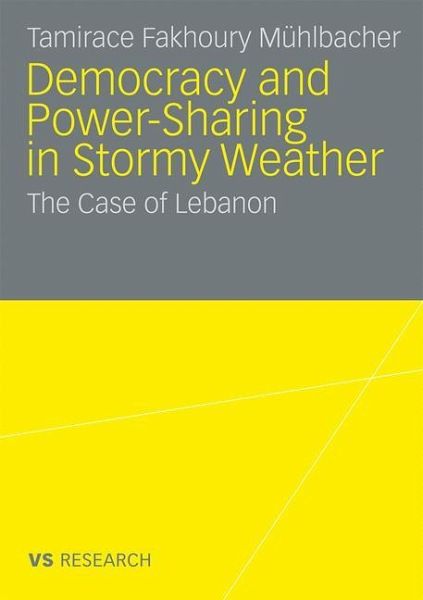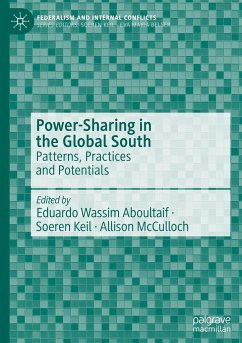
Democratisation and Power-Sharing in Stormy Weather
The Case of Lebanon

PAYBACK Punkte
0 °P sammeln!
The Case of Lebanon
This thorough, up-to-date overview of wastes accumulating at mine sites deals comprehensively with sulfidic mine wastes, mine water, tailings, cyanidation wastes of gold-silver ores, radioactive wastes of uranium ores, and wastes of phosphate and potash ores.
This thorough, up-to-date overview of wastes accumulating at mine sites deals comprehensively with sulfidic mine wastes, mine water, tailings, cyanidation wastes of gold-silver ores, radioactive wastes of uranium ores, and wastes of phosphate and potash ores.
Is democracy possible only in homogeneous societies? Does heterogeneity - clude a stable democracy? Throughout history, ethnic, linguistic, or religious homogeneity whether by circumstance, coercion, or choice, has seemingly been conducive to democracy. In France, democracy was established after the impo- tion of religious uniformity and the revocation of the Edict of Nantes. The United States pulled in immigrants who renounced their original affiliations to forge a new identity in a newly born state. Still, defying assumptions, democracies have emerged in heterogeneous states such as the Swiss Confederation, the Successor States of the Holy Roman Empire and, later, those carved out of the previous colonial empires. One common feature is the failure of - often violent - attempts to enforce homogeneity, or the lack of any such attempt in the first place. In the course of time, these divided societies have learned to live in diversity, to pacify their differences, and to find a path - wards peace or at least accommodation. In sum, they went beyond forms of se- rating powers to sharing power. Whether defined by ethnicity, language, religion, or even ideology, communities agreed to a pact on participating in a joint gove- ment based on proportional or even equal representation. It is noteworthy that political systems based on power-sharing were long marg- al in mainstream political science which laid an emphasis on democratic tran- tions in homogeneous societies and on socio-economic or cultural prerequisites that facilitate the rise of democracy.














